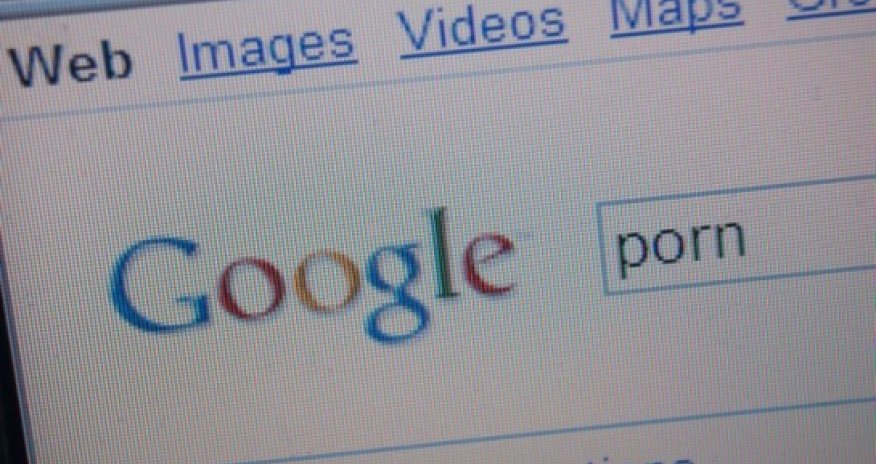Google block on child porn

Internet search results linked to child abuse are to be blocked across the world in a stunning U-turn by Google.The world's biggest media firm has agreed to introduce changes which will prevent depraved images and videos from appearing for more than 100,000 different searches.The company's chairman Eric Schmidt, writing in today's Daily Mail ahead of a Downing Street summit on internet pornography, says: 'We've listened.'We've fine-tuned Google Search to prevent links to child sexual abuse material from appearing in our results.'The restrictions, which have been designed to apply in English-speaking countries, will be expanded to cover the rest of the world and 158 other languages in the next six months.Mr Schmidt also reveals that Google has developed breakthrough technology that will allow illegal videos to be 'tagged' so that all duplicate copies can be removed across the internet.Microsoft, which operates search engines Bing and powers Yahoo, will confirm at the Downing Street talks that it is introducing similar restrictions. The dramatic developments follow the Daily Mail's concerted fight to force the industry to clean up the internet with its Block Online Porn campaign.David Cameron, in an interview with this newspaper, said the move represented 'a really significant step forward' but was not enough – and threatened legislation if the firms refuse to do more.'We learnt from cases like the murder of Tia Sharp and April Jones that people will often start accessing extreme material via a simple search in one of the mainstream search engines,' the Prime Minister said.Mr Cameron said a list of terms had been drawn up by child protection experts which they judged were 'unambiguous'.'If you used these you were looking for child abuse images online,' he added. 'I challenged the search companies to block these terms, to make sure that no illegal content or pathways to illegal content were returned.'At the time, Google and Microsoft – who cover 95 per cent of the market – said blocking search results couldn't be done, that it shouldn't be done.'They argued that it was against the very principle of the internet and search engines to block material, even if there was no doubt that some of the search terms being used by paedophiles were abhorrent in a modern society.'I did not accept that then and I do not accept that now.'Mr Cameron said the moves being announced by Google and Microsoft represent 'significant progress'.'The internet search engines will set out how they will take action to stop child abuse material from being available through a simple search online. They're going to be doing this not only in Britain but across the world,' he said.'This will include the introduction of new algorithms [sets of instructions for software] that will block child abuse images, videos and pathways that lead to illegal content, covering 100,000 unique searches on Google worldwide. So the effort we have made in the UK is going to be a huge benefit across the world.'Other measures agreed include stopping auto-complete features – which will prevent search engines from prompting child abuse search terms even if a person was not looking for them.For the 13,000 terms most clearly linked to child abuse, Google will flash up warnings of illegality and provide links to charities offering help.Google and Microsoft will also work with the National Crime Agency and the Internet Watch Foundation to bring forward a plan to tackle 'peer to peer networks' – file-sharing networks which paedophiles use to contact each other.Google's new technology, developed by 200 of their IT experts, will put a unique identification mark on illegal child abuse videos, meaning all copies are removed from the web once a single copy is identified. The firm is offering to share the technology, similar to existing 'photo DNA' used for still images, with rivals.'Google and Microsoft have come a long way,' Mr Cameron added. 'A recent deterrence campaign from Google led to a 20 per cent drop off in people trying to find illegal content, so we know this sort of action will make a difference.'Both companies have made clear to me that they share my commitment to stop child abuse content from being available not only in the UK but across the world.'This must mean making sure that it is not possible for people to find child abuse content via search engines now or in the future.'We will now work with the National Crime Agency and others to monitor the effectiveness of the new technology introduced by Google and Microsoft.'It's imperative that they can show they are preventing imagery or pathways are returned against blacklisted search terms identified by the National Crime Agency.'If the search engines are unable to deliver on their commitment to prevent child abuse material being returned from search terms used by paedophiles, I will bring forward legislation that will ensure it happens.'There are some terms that are so shocking and unambiguous that I believe they should return nothing at all. It's not an infringement of free speech, it's responsible business practice.'So the threat of legislation has not gone away. I believe we are heading in right direction but no-one should be in doubt that there is a red line: if more isn't done to stop illegal content or pathways being found when you use a child abuse search term, we will do what is necessary to protect our children.'In today's article, Mr Schmidt insists his and other internet companies have been working for years to try to prevent paedophiles sharing illegal images and remove as many as possible from the web.'But as David Cameron said in a speech this summer there's always more that can be done,' he says.He adds that in the last three months his firm has 'put over two hundred people to work developing new, state of the art technology to tackle the problem'.'While no algorithm is perfect – and Google cannot prevent paedophiles adding new images to the web I these changes have cleaned up the results for over 100,000 queries that might be related to the sexual abuse of kids.'Crucially, the system is designed to identify new code words or terms paedophiles start to use and will block search results for these too.Google spokesman Peter Barron said: 'The sexual abuse of children ruins young lives. It's why we proactively remove these awful images from our services – and report offenders to the authorities. But the Government is right that our industry can do more. So we' ve developed new technology to detect and remove videos of abuse, as well as fine-tuned our search engine to prevent this material from appearing in our results.'We hope this will make a difference in the fight against the sexual exploitation of kids.'Other measures being discussed at the Downing Street summit today include family-friendly filters to screen out all adult content. As revealed in Saturday's Mail all 20million households that are connected to the internet are being contacted by their service providers and given an 'unavoidable choice' about whether they want to be able to access porn.The Government is taking other steps, including criminalising scenes of simulated rape.(dailymail.co.uk)ANN.Az
Similar news
Similar news




































 Photo
Photo 



 Video
Video 

